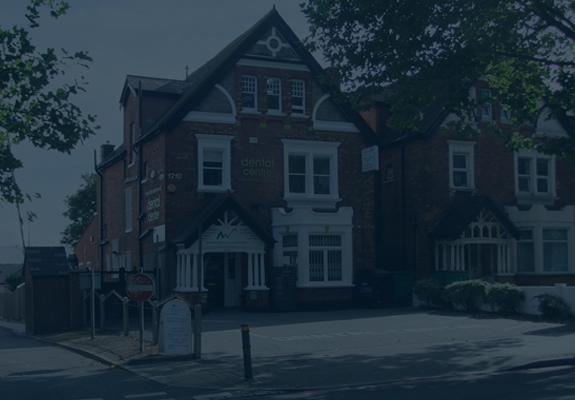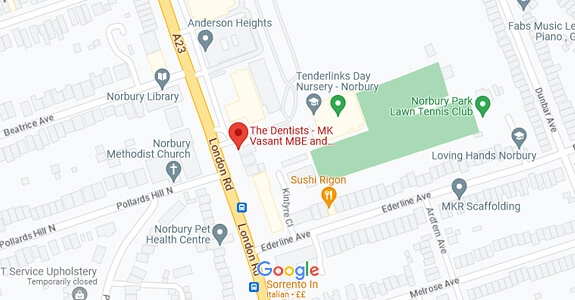These guys are ace! I'm terrified of the dentist but they made me feel so comfortable. I have had a couple of teeth taken out here and both times it was all over within five minutes! I cannot compliment this dentist enough, absolute blessings! Thank you so much!
One area of speciality areas within dentistry is known as oral surgery and this applies to procedures of a surgical nature, such as the extraction of teeth or wisdom teeth. Oral surgery requires additional training in techniques to perform procedures with care, helping patients to be able to use their teeth and mouths again.
If you have advanced tooth decay or an impacted wisdom tooth, you may require oral surgery to have them safely extracted. Depending on your particular case and the severity of your problem, you will be given anaesthetic and offered sedation if you are anxious.
It is important to always get the advice of a dental professional if you are worried about any of your teeth. Never attempt to pull out your own tooth out at home as this could cause a more serious problem for you. Dentists have the right equipment and sterile environment in which to perform this type of procedure with the utmost care and your recovery can be fairly quick. In the case of wisdom teeth extractions you may have some swelling after the procedure and discomfort that can be eased with over the counter painkillers.
An extraction is a dental procedure in which a tooth is removed from its socket in the bone. This is commonly performed when a tooth is severely damaged or decayed and cannot be saved through other dental treatments.
There are several reasons why tooth extraction may be necessary. These include severe tooth decay, advanced gum disease, tooth infection, overcrowding of teeth, impacted wisdom teeth, or preparation for orthodontic treatment.
Oral surgery refers to any surgical procedure performed in the mouth. This can include tooth extractions, dental implant placement, removal of impacted teeth, treatment of oral diseases, and jaw surgery.
The extraction procedure itself is performed under local anesthesia to ensure your comfort. You may feel some pressure during the procedure, but you should not experience any pain. After the procedure, mild discomfort and swelling can occur, but your dentist will provide appropriate pain relief medications.
The duration of a tooth extraction can vary depending on the complexity of the case. Simple extractions may be completed in just a few minutes, while more complex cases involving impacted teeth or multiple extractions may take longer.
The recovery period can vary from person to person. Generally, it may take a few days to a week to recover fully. During this time, it is important to follow your dentist's post-operative instructions, including proper oral hygiene practices and avoiding certain foods that may irritate the extraction site.
In the initial days after an extraction, it is recommended to stick to soft foods to prevent any irritation or injury to the extraction site. As the healing progresses, you can gradually introduce solid foods back into your diet.
There are several options to replace an extracted tooth, including dental implants, bridges, and dentures. Your dentist will discuss these options with you and recommend the most suitable one based on your individual needs and preferences.
Like any surgical procedure, tooth extractions carry some risks. The most common complications include dry socket (a painful condition where the blood clot does not form or dislodges after extraction), infection, damage to surrounding teeth or tissues, and excessive bleeding. However, these complications are rare and can be minimised by following your dentist's post-operative instructions.
If you undergo a simple extraction with local anesthesia, you should be able to drive home afterwards. However, if you receive sedation or general anesthesia, it is necessary to have someone accompany you and drive you home, as the effects of the anesthesia may impair your ability to drive safely.
Impacted wisdom teeth are the third molars that do not have enough space to fully emerge or develop properly within the mouth. They can cause pain, infection, and overcrowding of other teeth. In such cases, extraction is often recommended.
Not all wisdom teeth need to be removed. If the wisdom teeth are healthy, properly positioned, and have enough space to erupt and be cleaned adequately, they may not require extraction. Your dentist will assess your specific case and recommend the most appropriate course of action.
It is advisable to take it easy for the first 24 hours after an extraction. Avoid any strenuous activities, exercise, or heavy lifting during this time. After this initial period, you can gradually resume your regular activities, taking care not to disturb the extraction site.
Maintaining proper oral hygiene practices, such as brushing twice a day, flossing daily, and visiting your dentist regularly for check-ups and cleanings, can help prevent dental issues that may require extractions. Additionally, addressing dental problems promptly can also help prevent the need for extractions in some cases.



